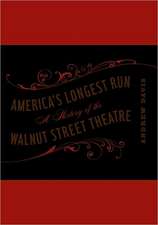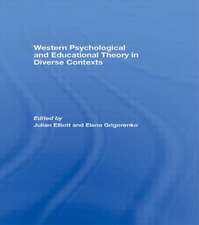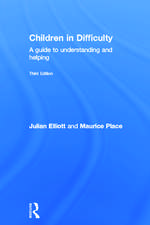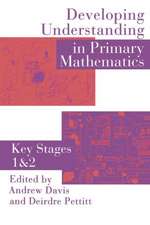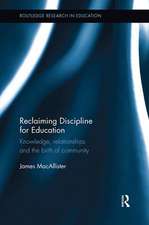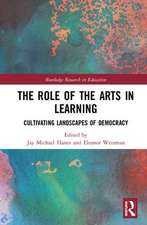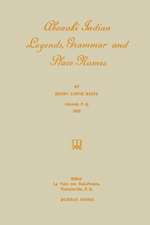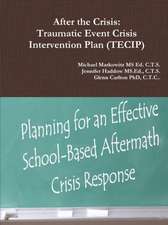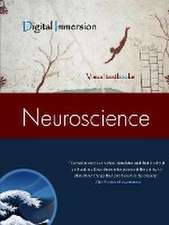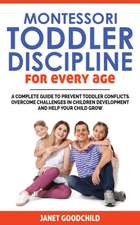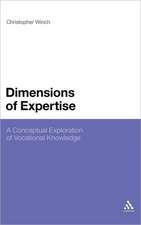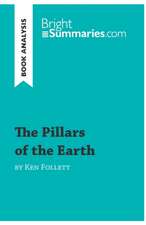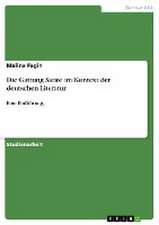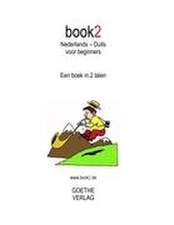Dyslexia: Developing the Debate: Key Debates in Educational Policy
Autor Julian Elliott, Professor Rod Nicolson Editat de Andrew Davis Professor Christopher Winchen Limba Engleză Paperback – 18 mai 2016
Preț: 184.59 lei
Preț vechi: 214.78 lei
-14% Nou
Puncte Express: 277
Preț estimativ în valută:
35.32€ • 36.98$ • 29.23£
35.32€ • 36.98$ • 29.23£
Carte disponibilă
Livrare economică 15-29 martie
Preluare comenzi: 021 569.72.76
Specificații
ISBN-13: 9781474233750
ISBN-10: 1474233759
Pagini: 224
Ilustrații: 6 bw illus
Dimensiuni: 138 x 216 x 15 mm
Greutate: 0.32 kg
Editura: Bloomsbury Publishing
Colecția Bloomsbury Academic
Seria Key Debates in Educational Policy
Locul publicării:London, United Kingdom
ISBN-10: 1474233759
Pagini: 224
Ilustrații: 6 bw illus
Dimensiuni: 138 x 216 x 15 mm
Greutate: 0.32 kg
Editura: Bloomsbury Publishing
Colecția Bloomsbury Academic
Seria Key Debates in Educational Policy
Locul publicării:London, United Kingdom
Caracteristici
Clarifies the evidence base for different forms of intervention
Notă biografică
Julian Elliott is Principal at Collingwood College and Professor of Education, Durham University, UK. He is a Fellow of the Academy of Social Sciences and a member of the Research Excellence Framework 2014 Education Panel.Rod Nicolson is Professor of Psychology at the University of Sheffield, UK. He is also an Executive Editor of Dyslexia. He has published over 100 academic articles, books and psychological tests, including the recent book Positive Dyslexia. Andrew Davis is Research Fellow within the School of Education at Durham University, UK. His recent publication To Read or Not to Read: Decoding Synthetic Phonics attracted widespread media attention and controversy.
Cuprins
Series Editor's Preface - Key Debates in Educational Policy, Christopher WinchNotes on Contributors Introduction, Andrew Davis Part One Developmental Dyslexia: The Bigger Picture, Rod NicolsonPart Two Dyslexia: Beyond the Debate, Julian ElliottPart Three Response to Julian Elliott, Rod NicolsonPart Four Response to Rod Nicolson, Julian ElliottAfterword: Some Philosophical Reflections, Andrew DavisReferencesIndex
Recenzii
The authors and editor of this book have impressive track records in terms of their research into aspects of dyslexia and they sit at the heart of the contentious issues that surround it as a recognizable learning difference ... An interesting read for those working in this field.
Ask almost any teacher and they will say that, without doubt, 'dyslexia' is one of the most contentious terms in contemporary education. Dyslexia attracts combatants who often polarize their position, sometimes to the detriment of children themselves. Elliott and Nicolson bring authoritative good sense to a contentious debate. Theirs are arguments that allow judgment and intellect to flourish, whilst diminishing the case of 'dyslexia partisans'.
Ask almost any teacher and they will say that, without doubt, 'dyslexia' is one of the most contentious terms in contemporary education. Dyslexia attracts combatants who often polarize their position, sometimes to the detriment of children themselves. Elliott and Nicolson bring authoritative good sense to a contentious debate. Theirs are arguments that allow judgment and intellect to flourish, whilst diminishing the case of 'dyslexia partisans'.







